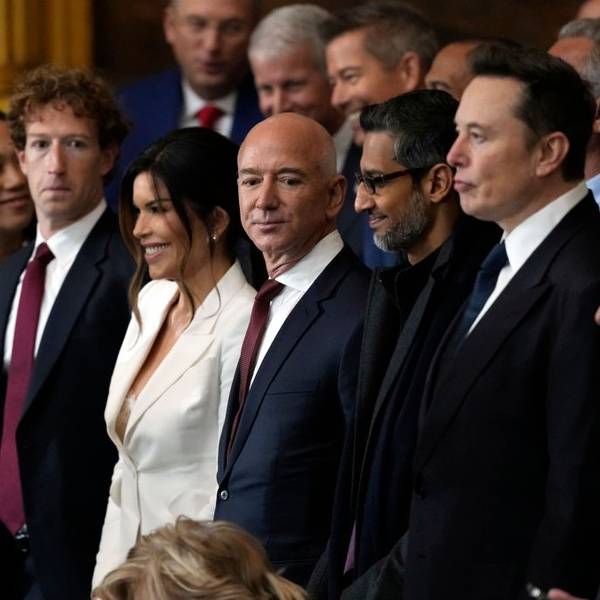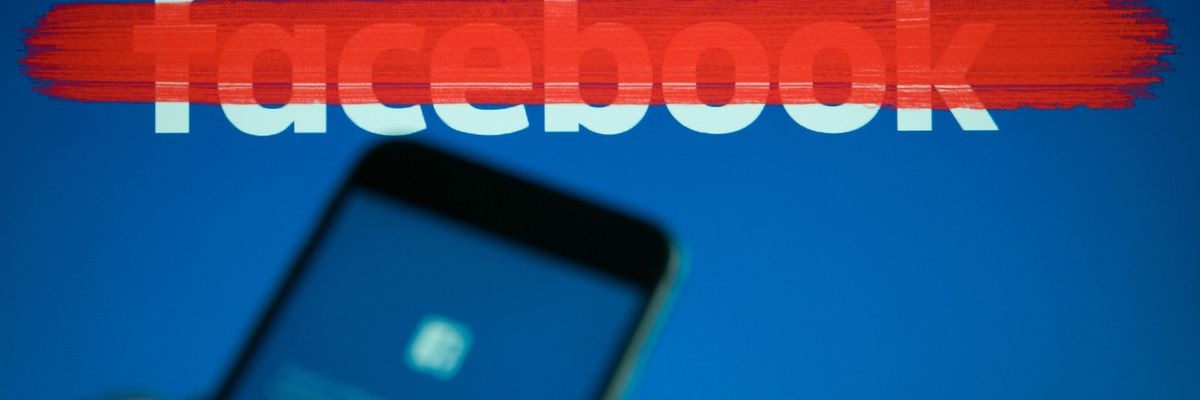As anti-choice lawmakers ramp up attacks on reproductive freedom across the United States, new reporting on Monday raised alarm about Big Tech companies limiting access to scientifically accurate content from abortion rights organizations while allowing the spread of misinformation.
"When there are efforts or blockages that are imposed by these companies, that impacts our ability to get the word out."
Representatives from multiple pro-choice groups told The Hill's Rebecca Klar about their struggles trying to circulate credible information on accessing medication abortion--which typically involves two medicines, mifepristone and misoprostol--through platforms including Facebook and Google-owned YouTube.
Klar's reporting follows the Food and Drug Administration earlier this month easing restrictions on abortion pills, enabling patients to receive the medication by mail instead of in person from certain health providers--a move that came as the right-wing U.S. Supreme Court is considering a case that could reverse Roe v. Wade.
Given current circumstances, sharing accurate information online is needed, according to Jennifer Holloway, communications director for the group Ipas, which had its YouTube channel temporarily suspended in August because of a video about self-managed abortion with pills.
"More Americans are going to need accurate information on abortion, and how to access an in-clinic procedure, or how to access abortion pills, how to use them, and what things they need to know about doing that," Holloway told The Hill.
"But these platforms have algorithms that surface the opposition and misinformation and misleading content, and that seems to be advantaged by the algorithm over scientifically based or fact-based information that sexual reproductive health groups are sharing," she added.
Another group that shares resources about abortion pills, Plan C, has had problems with not only Google--which did not respond to Klar's request for comment--but also Facebook and Instagram, which have the same parent company, Meta.
Klar reported that Plan C had its Google advertising account suspended for several days this month, and executives at the organization said Facebook and Instagram regulalry remove its organic posts and reject its ads.
A spokesperson for Meta did not respond to questions about organic posts but "said that some Plan C ads being rejected doesn't reflect the vast sum of the organization's efforts on Facebook," according to The Hill, which noted that the group has active advertisements on the platform, based on a search of its public ad library.
Social media is a "key way that advocates and others reach people who have a need for information," said Plan C co-founder and co-director Elisa Wells, "so when there are efforts or blockages that are imposed by these companies, that impacts our ability to get the word out."
Meanwhile, as a September report from the Center for Countering Digital Hate (CCDH) revealed, Facebook and Google "take money for ads that promote an unproven and unsafe medical procedure--so-called abortion 'reversal.'"
"Clinical studies show this procedure is dangerous, potentially causing severe hemorrhaging," the report noted. "In every case these ads violate the platforms' own standards."
Google responded to CCDH's findings by taking action to remove advertisements with abortion misinformation. The Hill pointed out that Facebook's ad library shows that some--but not all--ads from pages identified in the report were also removed.
Tech giants, especially Google and Facebook, face growing criticism for not doing enough to combat--and often profiting from--circulating misinformation on various topics, from the climate emergency to Covid-19 vaccines and other healthcare issues.
Calls for bolder action by Big Tech companies and lawmakers to tackle online misinformation mount as right-wing policymakers enact laws intended to not only cut off access to reproductive healthcare but also enable the Supreme Court to overturn the 1973 ruling that affirmed the right to abortion.
In response to the "unprecedented" attacks on abortion rights by GOP state lawmakers and concerns about the looming decision on Roe, U.S. Senate Democrats are under pressure to advance the House-approved Women's Health Protection Act by any means necessary--including abolishing the filibuster, which may also be necessary to pass restrictions on Big Tech.




